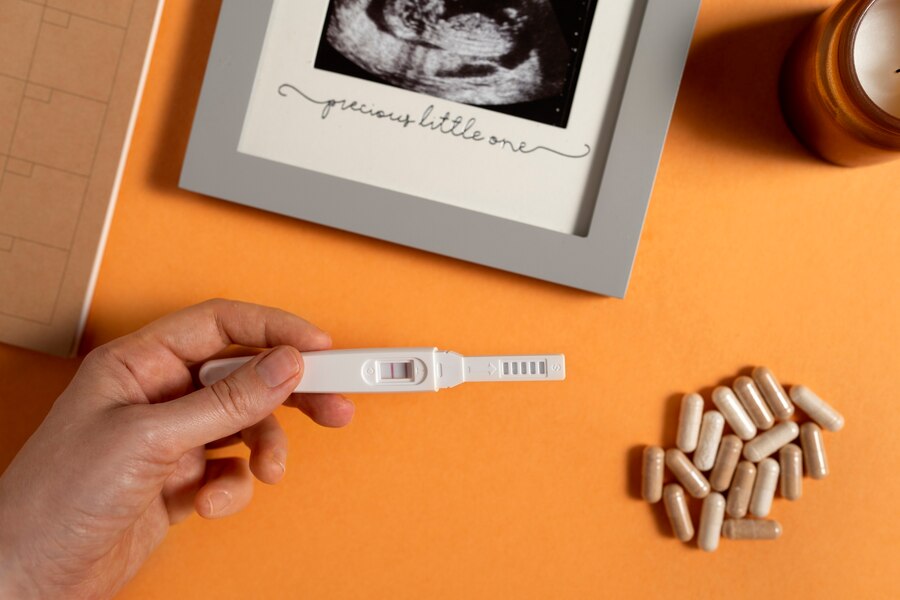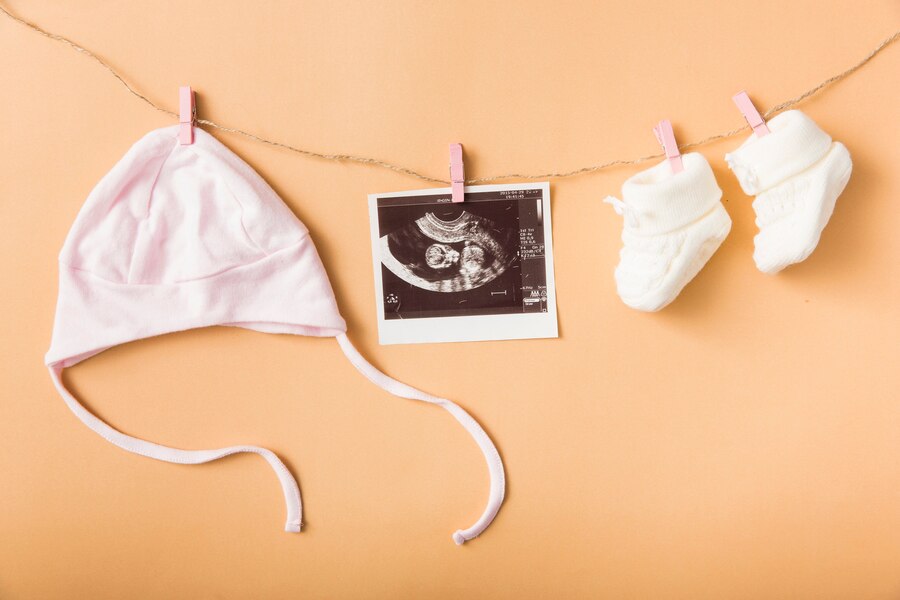Many factors lead to high risk pregnancy and one of these factors is age.
High risk pregnancy age is one of the most dangerous factors that affect pregnancy as more women choose to have children later in life.
We will explore the high risk pregnancy age including potential health complications for both mother and baby, as well as the importance of prenatal care and monitoring.
What are the various factors that put a pregnancy at risk?
There are various factors can elevate the risk of complications for both mother and baby:
- High risk pregnancy age
- Preexisting Health Conditions
- Obesity
- Multiple Pregnancies
- History of Pregnancy Complications
- Smoking and Substance Abuse
- Infections
- Low Socioeconomic Status
- Emotional and Mental Health

What age is classed as a high risk pregnancy?
High risk pregnancy age refers to the increased likelihood of complications for women who are either under 17 or over 35 years old.
Younger mothers under 17 may face risks due to their developing bodies and socio-economic challenges, leading to issues such as premature birth and low birth weight.
On the other hand older mothers, over 35, are the most common and may encounter complications like gestational diabetes, high blood pressure, and chromosomal abnormalities in the fetus.
Both age groups consider high risk pregnancy age that requires careful monitoring and specialized prenatal care.
What is the advanced maternal age and does it differ from geriatric pregnancy?
Advanced maternal age refers to women who will be 35 or older at their due date. While "geriatric pregnancy" is an outdated term that some may still use, most healthcare providers now prefer "advanced maternal age."
Both terms highlight the high risk pregnancy age, but advanced maternal age is the more accepted terminology today.
What are the most common health risks for women over 35 during pregnancy?
High risk pregnancy age causes many problems like
Gestational Diabetes:
Increased likelihood of developing diabetes during pregnancy.
Hypertension and Preeclampsia
Higher chances of elevated blood pressure and related complications.
Chromosomal Abnormalities
Increased risk of genetic disorders, such as Down syndrome, due to age-related factors.
Miscarriage
Rates of miscarriage increased compared to other women.
Stillbirth
Increased risk of stillbirth in later pregnancies.
Preterm Birth
Greater likelihood of delivering prematurely.
Placenta Previa
Increased risk of the placenta covering the cervix, which can complicate delivery.
Cesarean Delivery
Higher chances of needing a C-section due to complications.
Multiple Pregnancies
Increased likelihood of carrying twins or multiples can lead to additional complications.
Emotional and Mental Health Issues
Greater potential for anxiety and depression related to pregnancy.
Why do complications occur more if pregnancy occurs at a high-risk age?
Complications are more likely to occur in high risk pregnancy age due to several key factors:
Physiological Changes
Aging impacts hormonal balance and reproductive health.
Preexisting Health Conditions
Older mothers often have chronic issues like diabetes and hypertension.
Genetic Risks
Increased likelihood of chromosomal abnormalities in the fetus.
Decreased Resilience
Aging bodies may struggle to handle the stresses of pregnancy.
Multiple Pregnancies
Higher chances of conceiving twins or multiples, which carry additional risks.
Delayed Recognition of Issues
Complications can still arise despite closer monitoring.
Higher Cesarean Rates
Increased likelihood of C-sections, which come with their risks.

How is high-risk pregnancy age diagnosed and what tests should be done?
High risk pregnancy age
It is diagnosed when a woman is 35 years old, often considering her medical history and other risk factors.
First Trimester Screening
Blood tests and ultrasound for chromosomal abnormalities.
Nuchal Translucency Screening
Measurement of fluid at the neck of the baby
Genetic Carrier Screening
Tests for hereditary conditions in parents.
Amniocentesis or Chorionic Villus Sampling (CVS)
Amniocentesis is used as a Diagnostic test for chromosomal abnormalities if needed.
Blood Pressure Monitoring
Regular checks for hypertension and preeclampsia.
Glucose Tolerance Test
Screening for gestational diabetes, typically between 24-28 weeks.
Ultrasounds
More frequent monitoring of fetal growth and development.
Fetal Monitoring
Assessments of the baby's heart rate and well-being, especially in later stages
What should women of high risk pregnancy age do to lower the risk of pregnancy complications?
Women of high risk pregnancy age can take several steps to lower the risk of complications:
Regular Prenatal Care
Attend all scheduled appointments for monitoring.
Healthy Lifestyle Choices
Balanced food and simple exercise.
Manage Preexisting Conditions
Work with healthcare providers to control chronic health issues.
Avoid Harmful Substances
Refrain from smoking, alcohol, and drugs.
Stay Hydrated
Drink plenty of water.
Stress Management
Practice techniques like yoga and meditation.
Educate Yourself
Learn about pregnancy and childbirth.
Build a Support System
You should have supportive family and friends.
Follow Medical Advice
Adhere to recommendations for screenings and lifestyle changes.
Plan for Delivery
Discuss birth plans with healthcare providers.

What is the miscarriage rate in women of high risk pregnancy age?
Women of high risk pregnancy age (35 years or older) face higher miscarriage rates, estimated at 15-20% for ages 35 to 39, and 25-50% for those 40 and older.
This increased risk is linked to declining egg quality and chromosomal abnormalities, with most miscarriages occurring in the first trimester.
Women with preexisting health conditions may experience even higher rates.
Despite these risks, many women over 35 have successful pregnancies, highlighting the importance of regular prenatal care and healthy lifestyle choices.
How can a pregnant woman at risk achieve a healthy, completed pregnancy?
To increase the chances of having a healthy baby if you are considered a high risk pregnancy age woman follow these steps:
- Attend all your medical appointments and screenings.
- Gain a true amount of weight during your pregnancy.
- Manage any previous medical conditions.
- Prevent any stress and get adequate sleep.
- Exercise and maintain healthy eating.
Are there any benefits to having a baby at an advanced age?
Having a child at an advanced age can provide many benefits, including emotional maturity, financial stability, and valuable life experiences that enrich parenting.
Older parents often have stronger support networks and are more intentional in their parenting choices, allowing them to devote more time and energy to their children.
Although there are risks, these benefits can lead to a positive parenting experience and a supportive environment.
So don’t panic if you’re pregnant at an older age or planning to. All you have to do is follow up with your doctor and follow his or her instructions.
In conclusion, High risk pregnancy age refers to women 35 years or older at delivery, associated with increased risks such as miscarriage, gestational diabetes, hypertension, and chromosomal abnormalities.
To reduce these risks, regular prenatal care and a healthy lifestyle are crucial.
Key tests include first-trimester screenings and genetic assessments. Despite challenges, older parents may benefit from emotional maturity, financial stability, and life experience, fostering a supportive environment for their children.
By adhering to medical advice and making informed choices, women of advanced maternal age can promote healthier pregnancies and outcomes.


You must be logged in to post a comment.